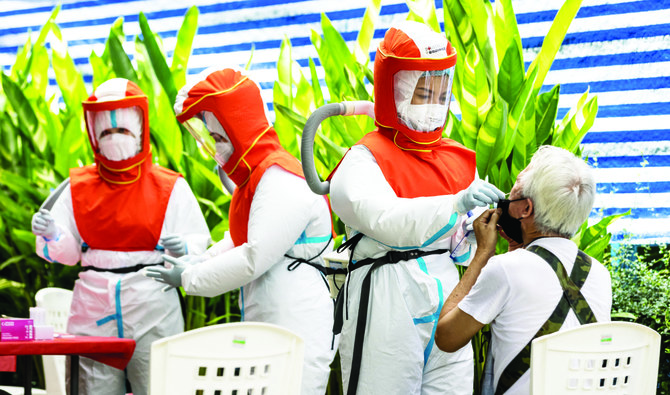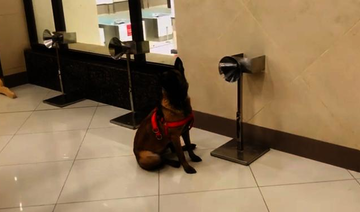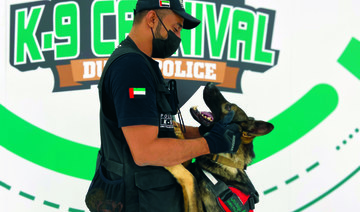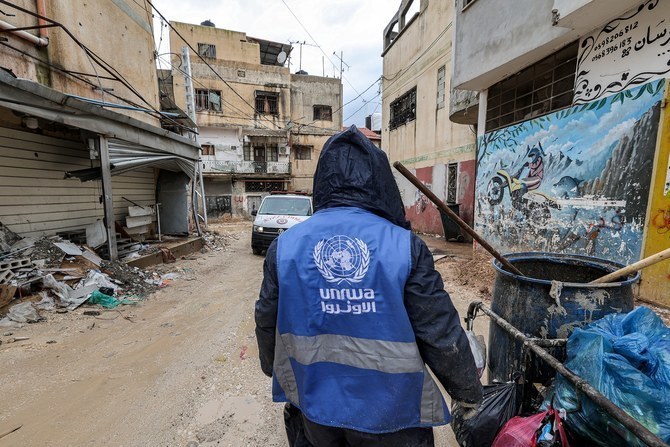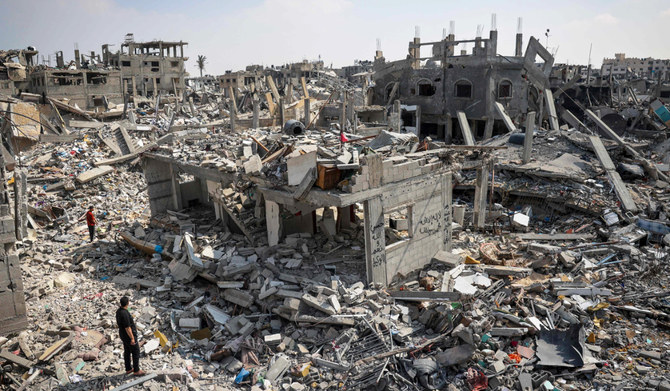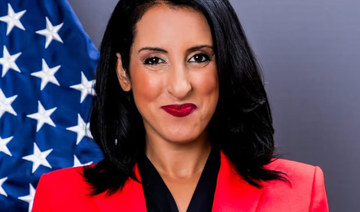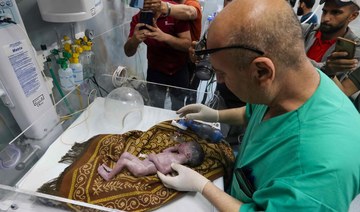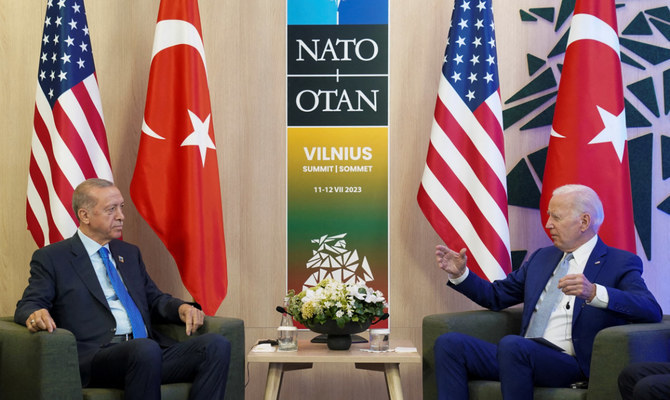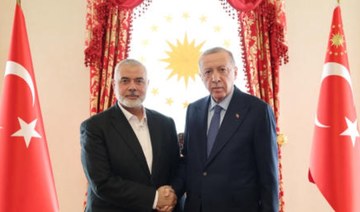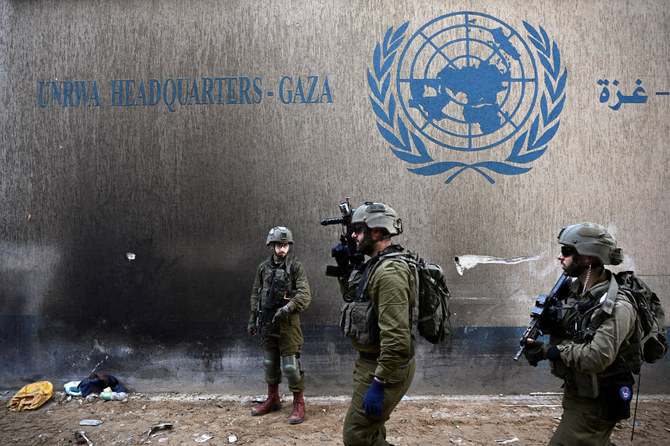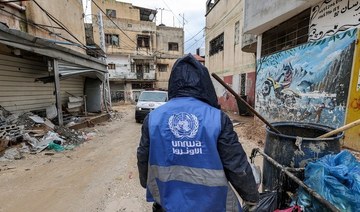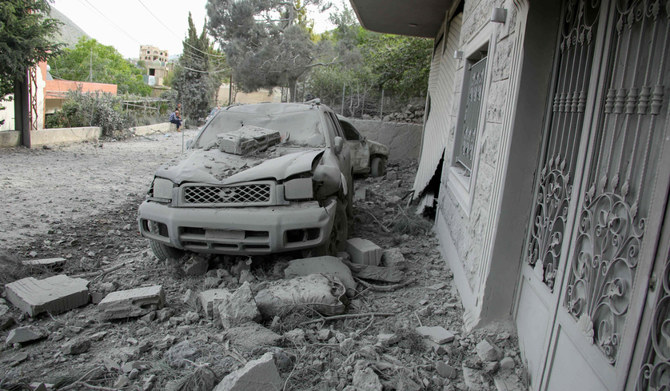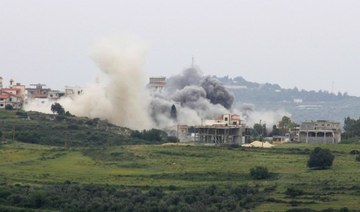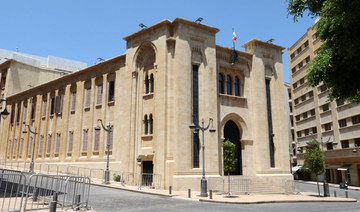DUBAI: Artificial intelligence and machine-learning technologies are expected to completely transform the way people live, work and do business. But one area where exciting developments are already becoming a reality is in health.
Osh Agabi, originally from Nigeria, has received funding from tech giants in Silicon Valley to develop his “clinical cyborg” — an innovation that aims to detect more than 4,000 smells simultaneously, resulting potentially in the diagnosis of a variety of diseases.
Agabi has drawn the attention of American venture capitalists impressed by his study of human cells grown on a computer chip.
“One thing that has always been a primary driver for me is, how does the human body essentially function?” he told Arab News.
“How is it possible that we are capable of so much? A human being is essentially a machine but a very advanced one.”
Of course, even the most sophisticated machinery can malfunction from time to time, which means the medical tools needed to diagnose and address these issues must evolve and advance.
With this in mind, Agabi launched his own company in 2015, named Koniku — which translates as “immortal” in Nigeria’s Yoruba dialect — specializing in robotics and synthetic neurobiology.
Among its recent creations is the Koniku Kore, which the company says is capable of detecting and interpreting 4,096 different smells at the same time.
“At any given time, you are exhaling literally thousands of different smells, and these different smells are giving us an indication as to the state of your health,” Agabi said.
“If you have a disease, there’s a smell signature associated with it. So, we now have a platform that could potentially be scaled worldwide to offer comprehensive clinical-grade data in everybody’s bathroom, collecting breath in real time and making every individual the CEO of their health.”
Scientists have long recognized the ability of dogs to sniff out human emotions such as fear and sadness and even detect certain cancers and other illnesses.
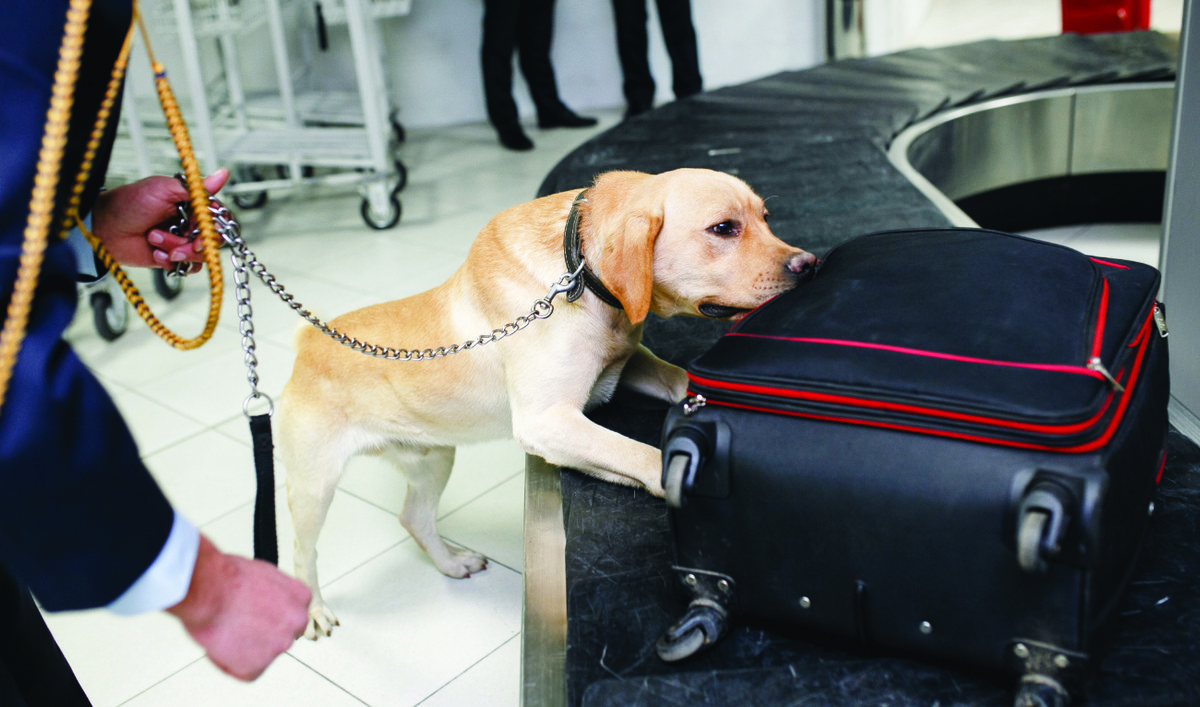
Scientists have long recognized the ability of dogs to sniff out emotions and illnesses. (Shutterstock)
Agabi and his team have isolated similar brain cells in mice, genetically modified them to carry proteins that allow them to smell the contents of the air and inserted them into a Koniku chip.
The chip is then placed inside the Koniku Kore, which collects air through a mechanical pump and passes it on to the cells. The cells then detect the smell and give off signals that are interpreted by the device’s onboard computer. Weighing just 700 grams, the device is ideal for home use, says the company.
“Our target, before this decade ends, is to have our technology in 10 million homes to analyze disease in real time,” Agabi said.
Some scientists caution that fusing natural proteins with silicon circuits is a daunting task, citing the fragility of cells and the complexity of their interactions with chemical substances.
A CNN web report of 2020 on Koniku quoted Timothy Swager, a chemistry professor at MIT, as saying that to pull off what the company claims would require “some technical miracle.”
Agabi, who completed his PhD studies in bioengineering and computational neuroscience at the ETH Zurich and Imperial College in London, intends to present his invention to potential investors at the upcoming Future Investment Initiative in Riyadh.
“It’s the thing that gets me up every morning and I’m excited about it,” he said.
Agabi is likely to find an enthusiastic crowd of potential investors. He won a startup competition organized by the Misk Global Forum in Saudi Arabia two years ago, so there are sure to be many in the Kingdom’s developing health-tech sector awaiting his return visit.
“It’s something I feel very privileged to do as a person coming from my background, born and bred in Lagos but mostly educated in Europe and now in the US scaling this technology to a global audience,” he said.
Given the healthcare challenges posed by the coronavirus disease (COVID-19) pandemic and the growing commercial interest in home and wearable health tech, Agabi believes there is a ready market for his creation.

Osh Agabi wants to bring that power to humans. (Supplied)
The device is currently undergoing clinical trials with Treximo and the University of Southern Nevada. Given its potential application as a rapid COVID-19 detection test, Koniku hopes to secure emergency use authorization for its product in the near future. From there, the sky is the limit for a whole new range of bio- and neuro-tech.
“Synthetic neurobiology and biotechnology will be big,” Agabi said. “When we have biotechnology or synthetic biology merged with data, machine learning and AI, what is possible is unprecedented. It will be the next big thing.”
Koniku’s customers to date include Airbus, which uses the technology to detect explosive compounds, and Thermo Fisher Scientific, the world’s largest manufacturer of scientific equipment, to sense fentanyl, methamphetamine and other drugs.
Major oil companies in Saudi Arabia are also in discussions with Koniku to use the technology to detect benzene, toluene, ethylene and xylene.
“During the refining process of oil and other such chemical compounds, there are compounds that are given off that might be carcinogenic for human beings, that decrease people’s quality of life, make the place smell bad, and so on,” said Agabi.
“This is what we have with Exxon Mobil, for instance, and for methane emissions and for all the compounds that are byproducts from the oil and gas industry that decrease the quality of life in the area we’re working on.”
Koniku has also explored several possibilities for the application of its innovations in oil exploration. “Think about our technology as a ‘smell cyborg,’ similar to a camera on your phone, for security, for filming or vision,” Agabi said.
“You can use this ‘smell cyborg’ for many more applications across the whole spectrum. But our strongest application and what our vision aims to bring to this world is diagnosing disease on a global scale.”
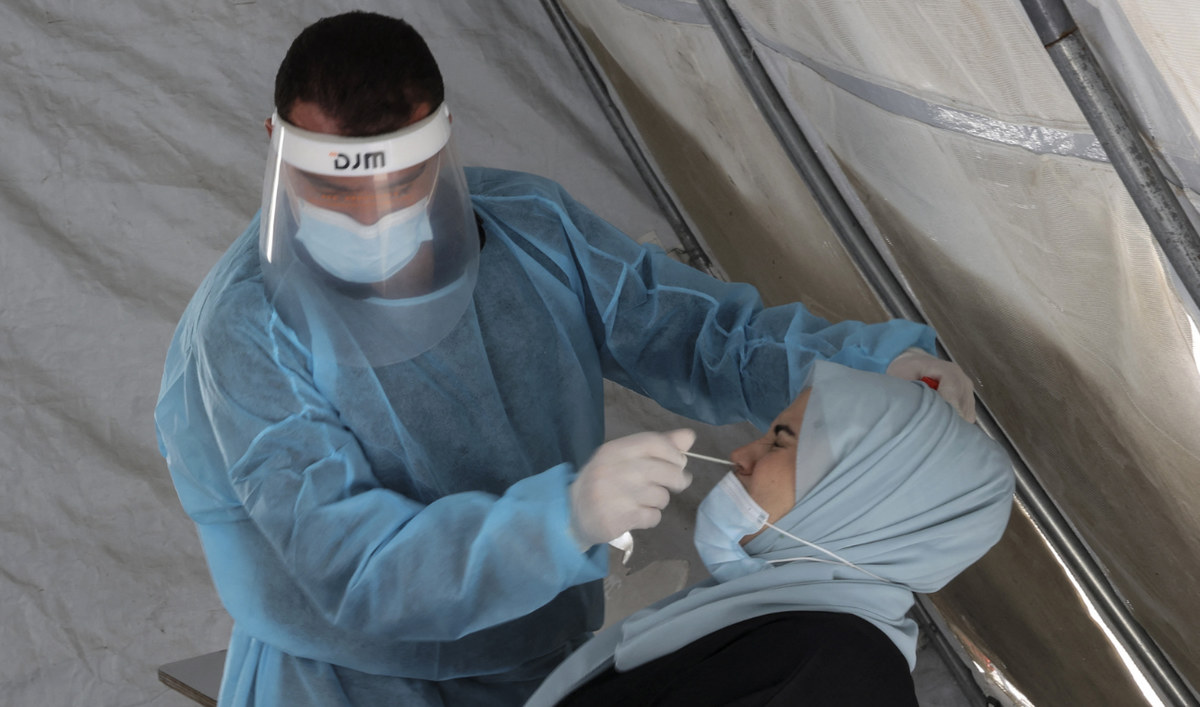
Given the healthcare challenges posed by the coronavirus disease (COVID-19) pandemic and the growing commercial interest in home and wearable health tech, Agabi believes there is a ready market for his creation. (AFP)
For Agabi, the pandemic has made it abundantly clear that the world needs a global system for disease surveillance, where abnormal breath signatures, propagation and growth rates can be detected. In doing so, sickness, death and economic damage could be avoided.
“It is an unfortunate crisis that has cost a lot of life and sorrow,” he said.
“But one of the things we can take from this is the need for a global disease surveillance system through which we can assess the health of people in different cities or states.”
In an increasingly interconnected world, Agabi says every individual has the potential to be a bioweapon until proven otherwise. The only way to make that transparency possible is to develop a technology stack that is able to scan people’s health on a global scale.
“That is what Koniku puts itself forward as,” Agabi said. “That’s what we seek partnerships on. But that is our larger vision, which, with the right partners and resources, we can realize. That’s why I’m very excited to return to the region and form strong partnerships to build this up.”
Twitter: @CalineMalek



